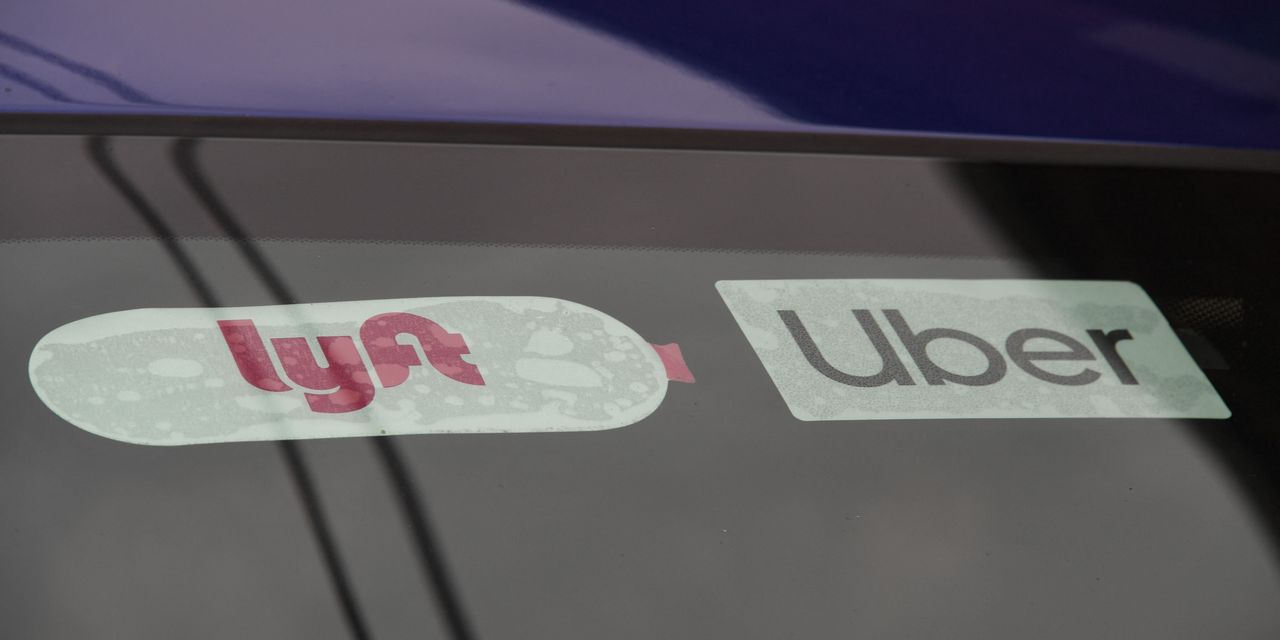Tens of thousands of ride-hailing drivers in Washington state will be the first in the nation to be entitled to unemployment insurance and paid family and medical leave under a bill signed by the governor this week.
The legislation Gov. Jay Inslee signed into law expands on other benefits — guaranteed wages and paid sick leave — that the state’s transportation-network company drivers gained last year from a bill backed by Uber Technologies Inc.
UBER,
and Lyft Inc.
LYFT,
“We know the nature of work is evolving, and so must the programs and policies that support workers and their families,” Inslee said during a bill-signing ceremony Monday.
In an email to MarketWatch, State Rep. Liz Berry, who wrote the legislation, said Tuesday that “Washington’s rideshare drivers are crucial to keeping our state moving, and they deserve access to all the same benefits and protections as any other worker.”
The ride-hailing companies, which are trying to protect their business models, are advocating a “third way” in labor law that gives drivers some benefits that other employees receive but doesn’t classify them as employees.
When the legislation was passed in mid-April, an Uber spokesperson called the bill “a true compromise between state lawmakers, labor leaders and transportation network companies to afford drivers historic new benefits while protecting the independence and flexibility they say they want.”
“This is another historic win for drivers in Washington state and is a continuation of the progress made last year,” a Lyft spokesperson said.
Peter Kuel is president of the Drivers Union in Washington, which is affiliated with Teamsters Local 117, which backed the bill.
“Finally, Uber & Lyft drivers in Washington state will no longer have to make the choice between caring for a sick family member and earning the money that allows them to provide for that family,” Kuel said. “For-hire drivers deserve the same rights as every other worker in this country.”
But Veena Dubal, a law professor at UC College of the Law in San Francisco who advocates for gig workers, said she is “concerned that this bill further entrenches the companies’ business model and legalizes the fiction that these workers are not employees.”
The law will go into effect in July 2024.
Ride-hailing drivers get paid for what the companies have referred to as “engaged time,” or the time between when they accept a ride request and complete the ride. A legislative report with specifics of the bill calls that “passenger platform time.” The hours on which unemployment insurance eligibility will be based is double the passenger platform time, which the ride-hailing companies will be required to report to the state.
For the purposes of the paid family or medical leave, a driver must have worked at least 820 hours in Washington during either the first four of the past five quarters, or the last four quarters before submitting for leave. The total hours worked will be calculated by taking total earnings and dividing by the state’s minimum wage. Drivers will have to pay premiums into the program and will be reimbursed by the ride-hailing companies.
Individuals who are considered employees pay into their states’ disability and leave systems along with their employers, and employees’ contributions are automatically deducted from their paychecks. Because drivers are not considered employees, they are being considered self-employed for the purposes of paid leave, and must pay the premiums up front.
See: Seattle becomes first city to give delivery drivers permanent paid leave benefits
Before her bill was signed into law, Berry explained in an email to MarketWatch that “this complexity is why the Paid Family & Medical Leave portion of this bill is structured as a pilot with an additional report, to gain more insight into user behavior and develop a permanent policy.”
The pilot expires in 2028, but Berry said that in the meantime, the reimbursement process will allow drivers to be eligible for paid leave by paying into the system and being compensated by the companies, “where otherwise the cost of coverage would be solely theirs.”
From the archives (May 2022): Seattle OKs minimum wage for gig workers at delivery companies
Read the full article here


